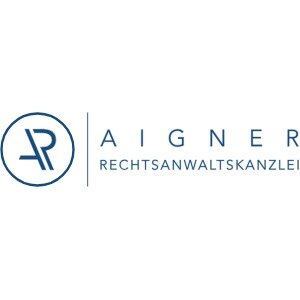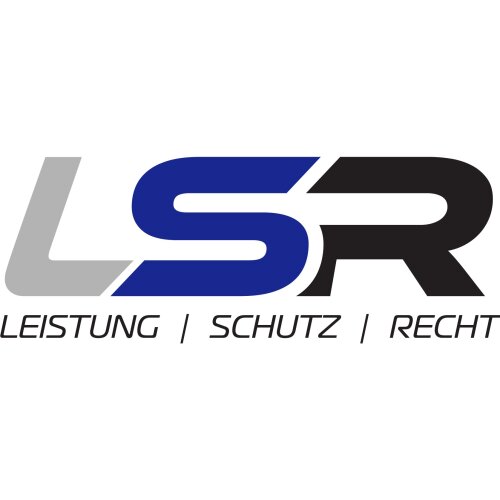Best Structured Finance Lawyers in Austria
Share your needs with us, get contacted by law firms.
Free. Takes 2 min.
Or refine your search by selecting a city:
List of the best lawyers in Austria
About Structured Finance Law in Austria
Structured finance refers to complex financial instruments and transactions that are designed to meet special financing needs which cannot be solved with conventional financing solutions. In Austria, structured finance is used by corporations, financial institutions, and sometimes the public sector for purposes such as project finance, asset securitization, syndicated loans, and derivatives trading. Austrian structured finance law encompasses national legislation as well as European Union directives and regulations that affect cross-border and domestic transactions.
The Austrian legal framework for structured finance is sophisticated and well-integrated with international financial standards. This ensures investor protection, regulatory compliance, and efficient functioning of financial markets within the country. Transactions commonly involve several parties, including originators, investors, arrangers, trustees, and rating agencies, all of whom must act in accordance with Austrian laws and EU rules.
Why You May Need a Lawyer
Structured finance transactions are typically more complex than standard financial or loan agreements. You may need a lawyer specializing in structured finance if you are:
- Participating in asset-backed securitizations or mortgage-backed securities transactions
- Seeking to use derivatives or arrange syndicated loans
- Structuring private placements or bond issuances
- A corporate borrower or financial institution managing risk exposure through innovative financial products
- An investor or arranger requiring due diligence on the legal soundness of a transaction
- Involved in cross-border transactions that require compliance with both Austrian and EU financial regulations
- Dealing with insolvency issues related to structured finance vehicles
- Facing disputes or enforcement actions associated with complex finance arrangements
An experienced lawyer can help you navigate regulatory requirements, ensure compliance with all aspects of the law, advise on best practices, and protect your interests throughout every stage of a transaction.
Local Laws Overview
Structured finance in Austria is governed by a blend of national laws and European Union regulations. Key pieces of Austrian law relevant to structured finance transactions include the Banking Act (BWG), Capital Market Act (KMG), Securitization Act, and the Financial Market Authority Act. These laws regulate, among other things, the licensing of financial institutions, disclosure requirements, and procedures for securitizing assets.
In addition to these, the Austrian Financial Market Authority (FMA) plays a central supervisory and enforcement role. The FMA oversees banking, insurance, and securities markets, ensuring that all relevant parties comply with anti-money laundering, transparency, and investor protection provisions. Austrian contract law, insolvency law, and tax law are also highly relevant, particularly for cross-border or multi-jurisdictional transactions.
Austrian law emphasizes the importance of clear and transparent documentation in all structured finance transactions. Particular attention is given to risk disclosures, bankruptcy remoteness of special purpose vehicles, and regulatory capital requirements for banks.
Frequently Asked Questions
What is structured finance, and how is it used in Austria?
Structured finance refers to tailored financial solutions often involving the pooling of assets or cash flows to create investment products. In Austria, it is primarily used for project financing, real estate transactions, asset securitization, and managing complex funding needs for large corporations.
Who regulates structured finance transactions in Austria?
The Austrian Financial Market Authority (FMA) is the main regulatory body overseeing structured finance transactions and related banking and securities activities in Austria.
What is asset securitization?
Asset securitization is the process of pooling financial assets, such as loans or receivables, and selling them to investors as securities. This is a common structured finance technique in Austria, especially for mortgage-backed or auto loan-backed securities.
Is it necessary to use a special purpose vehicle (SPV) in structured finance deals?
Yes, SPVs are commonly used in structured finance transactions to isolate risk and ensure bankruptcy remoteness, protecting investors from the insolvency of the originator.
How are cross-border structured finance transactions handled in Austria?
Cross-border transactions must comply with both Austrian law and relevant EU regulations, such as the EU Securitization Regulation and directives on anti-money laundering and market abuse.
What is the documentation process like in Austrian structured finance?
The process requires comprehensive and transparent documentation, often involving legal opinions, offering circulars, transactional agreements, and disclosure statements to satisfy regulatory and investor requirements.
Are there tax implications in structured finance transactions in Austria?
Yes, there can be significant tax consequences, especially concerning the setting up of SPVs or issuing securities. Proper tax planning and legal advice are essential to avoid unexpected liabilities.
What is the role of the Financial Market Authority in structured finance?
The FMA supervises financial market participants, grants licenses, enforces compliance with capital market laws, and monitors for market abuse or systemic risk in structured finance activities.
What legal risks are involved in structured finance deals?
Legal risks include documentation errors, failure to comply with disclosure obligations, insolvency of counterparties, changes in regulatory requirements, and potential disputes over the interpretation of complex contracts.
How can a lawyer assist in a structured finance transaction?
A lawyer can help structure transactions, review and draft documentation, conduct due diligence, advise on regulatory compliance, handle negotiations, and represent clients in disputes or enforcement proceedings.
Additional Resources
If you need further information or support concerning structured finance in Austria, consider contacting or consulting the following resources:
- Austrian Financial Market Authority (FMA) - Austria's main financial regulatory body
- Chamber of Commerce Austria (Wirtschaftskammer Österreich) - Offers information about financial regulations and business practices
- Ministry of Finance Austria - Provides updates on tax laws and financial legislation relevant to structured finance
- Austrian Bar Association - Can help you find legal professionals who specialize in structured finance
- European Securities and Markets Authority (ESMA) - For EU-wide regulations affecting Austrian structured finance transactions
Next Steps
If you require legal advice or assistance related to structured finance in Austria, consider the following steps:
- Identify your specific needs and objectives for the structured finance transaction
- Gather all relevant documentation and information regarding your planned activities
- Consult with a lawyer specializing in structured finance, ideally with experience in the Austrian and European legal framework
- Discuss potential risks, regulatory requirements, and any tax implications with your legal adviser
- Ensure all parties involved in the transaction understand their rights and obligations
- Proceed with the transaction only after thorough due diligence and regulatory clearance
Legal matters in structured finance are intricate and can significantly impact the success of your financial endeavors. Seeking professional legal assistance early in the process is the best way to secure your interests and ensure full compliance with Austrian law.
Lawzana helps you find the best lawyers and law firms in Austria through a curated and pre-screened list of qualified legal professionals. Our platform offers rankings and detailed profiles of attorneys and law firms, allowing you to compare based on practice areas, including Structured Finance, experience, and client feedback.
Each profile includes a description of the firm's areas of practice, client reviews, team members and partners, year of establishment, spoken languages, office locations, contact information, social media presence, and any published articles or resources. Most firms on our platform speak English and are experienced in both local and international legal matters.
Get a quote from top-rated law firms in Austria — quickly, securely, and without unnecessary hassle.
Disclaimer:
The information provided on this page is for general informational purposes only and does not constitute legal advice. While we strive to ensure the accuracy and relevance of the content, legal information may change over time, and interpretations of the law can vary. You should always consult with a qualified legal professional for advice specific to your situation.
We disclaim all liability for actions taken or not taken based on the content of this page. If you believe any information is incorrect or outdated, please contact us, and we will review and update it where appropriate.
Browse structured finance law firms by city in Austria
Refine your search by selecting a city.














